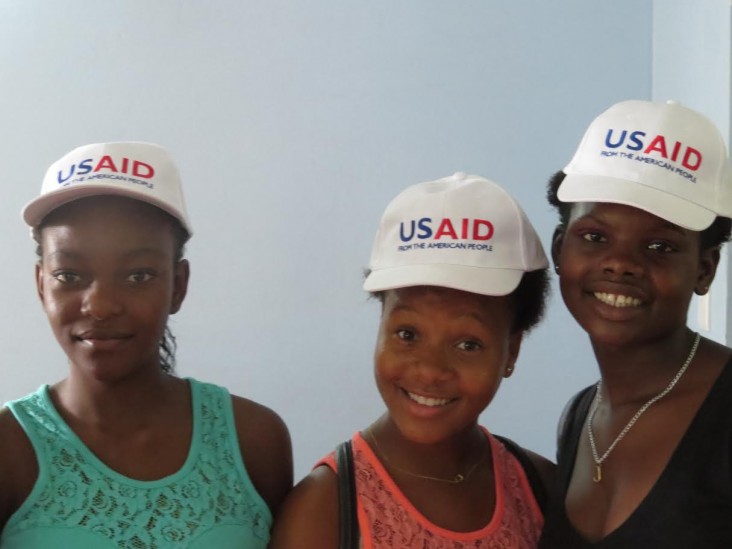
For Immediate Release
Vincentians are benefitting from a modernized juvenile justice system and are better equipped to adapt to climate change as a result of two major projects supported by the United States Government through the United States Agency for International Development (USAID) in collaboration with the Organisation of Eastern Caribbean States (OECS).
USAID Mission Director for the Eastern and Southern Caribbean, Christopher Cushing, highlighted these developments during a close-out ceremony for the St. Vincent and the Grenadines phase of the Caribbean regional US$5.8 million “Juvenile Justice Reform Project” and the US$9.5 million “Rallying the Region to Action on Climate Change” project held at the Liberty Lodge Boys Training Centre.
Mr. Cushing told the gathering that of this US$15.3 million regional investment, the U.S. government provided approximately $1.3 million in assistance to support reform efforts in St. Vincent’s juvenile justice sector and $1.5 million to improve the country’s resilience to climate change.
Commending the St. Vincent and the Grenadines government for improving its juvenile justice system, he lauded the local implementing committee for ensuring that programming was integrated across both the public and non-governmental sector and that the island’s Social Services Department was reorganized to enhance efficiency.
“These accomplishments are exciting, as they demonstrate a willingness to make appropriate changes in systems and procedures within the context of juvenile justice reform. As a result, the treatment of youth in conflict with the law has vastly improved and greater advocacy for children’s rights and holistic juvenile justice reform exists both at this facility and in the country,” Mr. Cushing stated. He commended the youth present for their willingness to make positive changes that would ultimately benefit their family, community, and country.
To help reform the country’s juvenile justice system and meet international standards, the U.S. envoy noted that the Juvenile Justice Reform Project supported the development of a National Juvenile Justice Strategy and a draft Child Justice Bill, which seeks to protect vulnerable children placed before the judicial system. He further noted that over 200 juvenile justice practitioners and media personnel had undergone extensive and specialized training to enhance their knowledge of modern approaches resulting in improved treatment of youth within the system.
In addition to making significant progress on juvenile justice reforms, Mr. Cushing said under the RRACC project the government of St. Vincent and the Grenadines also “took positive steps toward enhancing its resilience to climate change.”
To combat severe water scarcity, USAID supported a rainwater harvesting and disaster management demonstration project at six designated disaster shelters in St. Vincent and Bequia. In Bequia, additional water storage was provided for the island’s desalination plant and distribution lines installed to facilitate reliable access to freshwater.
“Turning public buildings and disaster shelters into water catchment centers provides a welcome solution to citizens who lack access to water during severe droughts and emergencies,” said Mr. Cushing. “This drastically improves sanitation, health, and the well-being for vulnerable communities – particularly following natural disasters when the groundwater is polluted and infrastructure is damaged. By working together with the communities to develop and implement climate smart techniques, St. Vincent and the Grenadines has a more dependable supply of clean water and increased capacity for climate change adaptation and resilience.”
Reiterating the U.S. government’s continued commitment to supporting future juvenile justice and regional climate change initiatives, Mr. Cushing said the activities and lessons learned in St. Vincent and the Grenadines were models which could be easily replicated across the region.







Comment
Make a general inquiry or suggest an improvement.